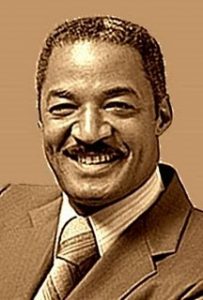
When I first got involved in Santeria, I first had to learn how to learn in the religion. Teaching, like most things, is done in the traditional way, because… well… it works. But it took some getting used to…
When I had just been initiated as a santero, I called my Oyugbona in Abofaca, Julito Collazo, to give him the news.
“I know you’re hungry, so I’m going to give you something to learn.” He then gave me a series of prayers.
“I want you to learn these and call me back in three days and recite them without using the paper.”
In Santeria, we don’t teach by seminar or classes (at least most of us don’t). While there is nothing actually wrong with that (unless you’re teaching people beyond their level of initiation), it’s not the traditional way. And of course there rules:
First, you have to get used to the idea that you are not going to learn things beyond the aché you have been given through initiation. One of the first rules is: if you haven’t received that initiation (or Oricha, or…), you aren’t allowed to see or know anything about that initiation. Period.
Also, you won’t be taught about things that are beyond your level of initiation. in other words, no matter how badly you want to know about Ifa or shell divination, you won’t be taught until you have the required initiations.
You cannot expect your Madrina or your Padrino to chase you down to teach you. You must go to them. You can ask questions, and if your Godparent thinks you’re ready for that information you will usually get an answer.
Most learning in Santeria is done by being there for ceremonies and working. Knowledge really is Power, so we don’t give it away for nothing. The relationship between Godparent and godchild is a reciprocal relationship so the godchild who is always around helping with ceremonies, etc. is always going to be taught more.
Also, assiduous Godparents are generally mindful that a godchild must have good fundamentals and will teach things in the proper order. While you might get valuable lessons on other things along the way, much of what will be taught at first are the all-important basics.
My Oyugbona Julito Collazo (Ibae) had a reputation for being a truly great drummer and babalawo… and for ‘not teaching.’ But I found it to be just the opposite…
After I worked my tail off and called him in three days to recite the prayers by memory, he gave me more basic information and had me practice those basics. Before long he was flooding me with knowledge.
It turns out he had been testing me to see if I was worth my salt (and worth teaching) as an apprentice. I later found out that most of the people who complained he didn’t teach were those who wanted to learn ‘the good stuff’ on their own terms which he was not about to do. Ever. For him, a godchild had to earn knowledge. Because knowledge is precious. And then it is the godchild’s forever.
My Oyugbona en Ocha, Oba Oriate Guillermo Diago was exactly the same way, but a lot tougher. And my Oyugbona in Ifa? Well I think you know the answer to this.
And although it was often difficult (to put it mildly), I would not change it for anything in the world…
